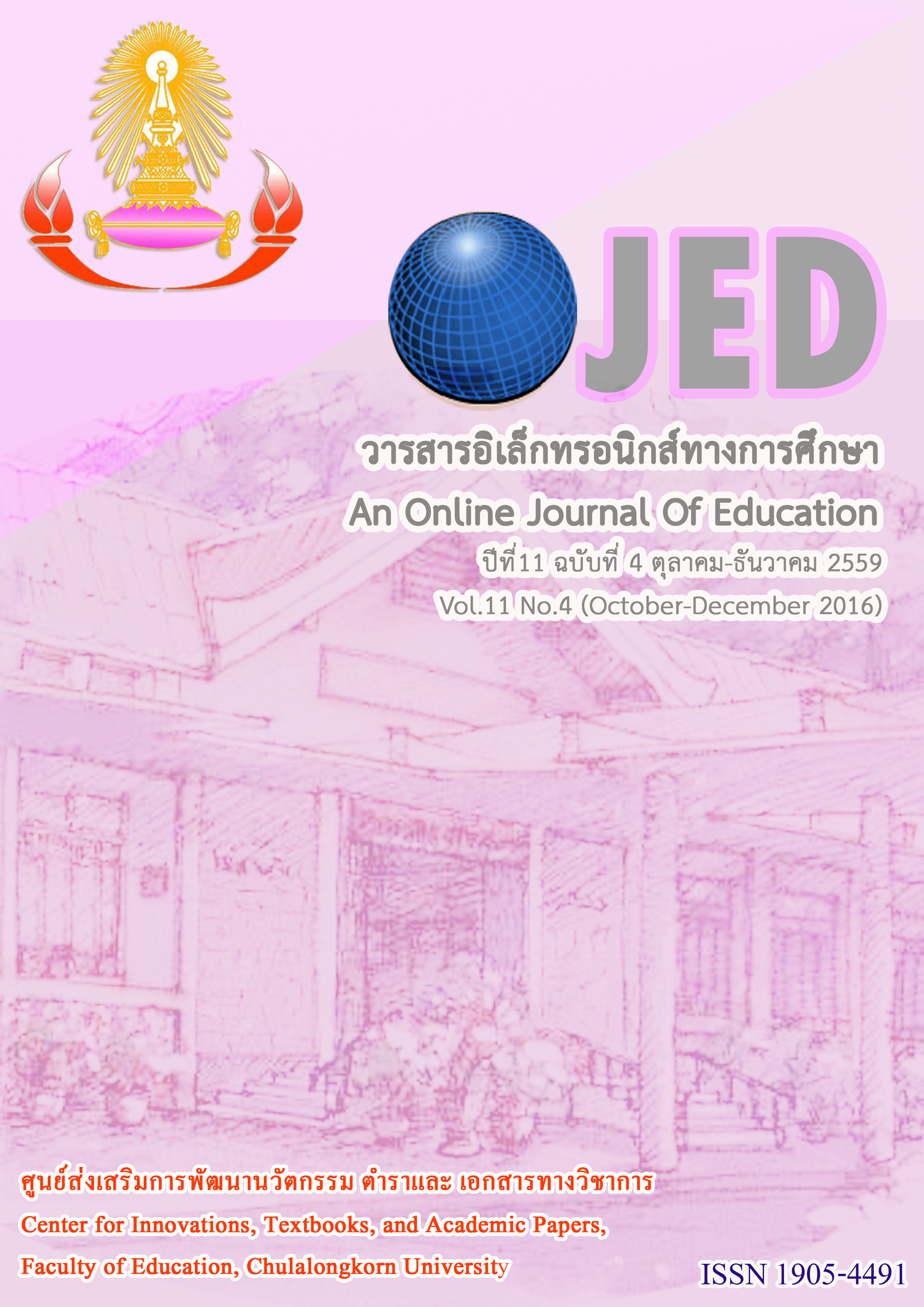ผลของการจัดกิจกรรมเรียนรู้เกี่ยวกับฟิสิกส์ในชีวิตประจำวันโดยใช้แนวคิดการศึกษานอกระบบโรงเรียนที่มีต่อทักษะการคิดอย่างมีวิจารณญาณของเยาวชนศรีสะเกษ EFFECTS OF “PHYSICS IN DAILY LIVES” LEARNING ACTIVITY BASED ON A NON-FORMAL EDUCATION CONCEPT ON ADOLESCENT CRITICAL THINKING SKILLS
Keywords:
LEARNING ACTIVITY, CRITICAL THINKING, PHYSICS IN DAILY LIFE, NON-FORMAL EDUCATIONAbstract
Abstract
The objectives of this study were to 1) study levels of critical thinking skills of adolescences in Srisaket Province and compare levels of critical thinking skills of adolescences between before and after participating learning activities about Physics in daily lives based on informal education ideas. The population in this study was adolescences with ages of 14-18 years old in Srisaket Province. The samples were 30 adolescences. The reserch procedures were divided into 2 stages ; 1) studying levels of critical thinking of 420 adolescences in Srisaket ; and 2) comparing levels of critical thinking of 30 adolescences in Phusing District, Srisaket Province before and after participating Physics in daily lives learning activities.
The results were as follow 1) Levels of critical thinking skills of adolescences participating in this activity were reported at the good level (69.14/100). The scores of each critical thinking skills showed (1) Summary evaluating skills (15/20) ; (2) problem solving skills and information credibility analyzing skills (13.68/20) ; (3) hypothesis setting skills (13.41/20) ; and (4) analyzing and summarizing skills (13.36/20) 2) The results of comparing levels of critical thinking skills showed that there was a statistically significant difference between the mean scores from the pre and post levels of critical thinking skills test in adolescences in Phusing district at the significant level of 0.5.




